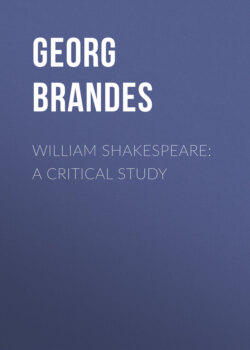Читать книгу William Shakespeare: A Critical Study - Георг Брандес - Страница 23
На сайте Литреса книга снята с продажи.
ОглавлениеBut it did not at all suit Shakespeare to show a Jack Cade at the head of a popular movement of this sort. He took no interest in anything constitutional or parliamentary. In order to find the colours he wanted for the rebellion, he hunts up in Stow's Summarie of the Chronicles of England the picture of Wat Tyler's and Jack Straw's risings under Richard II., two outbursts of wild communistic enthusiasm, reinforced by religious fanaticism. From this source he borrows, almost word for word, some of the rebels' speeches. In these risings, as a matter of fact, all "men of law, justices, and jurors" who fell into the hands of the leaders were beheaded, and all records and muniments burnt, so that owners of property might not in future have the means of establishing their rights.
This contempt for the judgment of the masses, this anti-democratic conviction, having early taken possession of Shakespeare's mind, he keeps on instinctively seeking out new evidences an its favour, new testimonies to its truth; and therefore he transforms facts, where they do not suit his view, on the model of other facts which do.
[1] See Appendix to Diary of Philip Henslowe (Shakspere Society's Publications).
[2] A figure of Hercules with the globe on his shoulders served as sign to the Globe Theatre.
